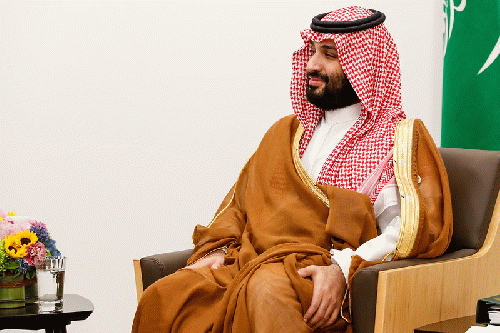After lengthy talks brokered by China in Beijing, Iran and Saudi Arabia have agreed to restore their relationship and reopen embassies, seven years after cutting ties. According to a joint statement cited by Iran's state news agency Irna, "As a result of the talks, Iran and Saudi Arabia agreed to resume diplomatic relations and reopen embassies...within two months."
The rupture between the two nations happened after Iranian protesters attacked Saudi diplomatic missions in Iran in 2016, following the execution of Shia cleric Nimr al-Nimr by Saudi Arabia. The Shia-dominated Iran and Sunni-led Saudi Arabia's rivalry has played a crucial role in Middle Eastern politics, affecting conflicts in Syria, Iraq, Lebanon, and Yemen. The move could have significant implications for the Iran nuclear deal and the Yemen war.
A rapprochement between Iran and Saudi Arabia could have significant implications for the Middle East region. Historically, Iran and Saudi Arabia have been fierce rivals, with long-standing tensions and conflicts fueled by their different interpretations of Islam, geopolitical ambitions, and support for opposing proxies. However, a rapprochement could potentially ease tensions and create a more stable and cooperative regional dynamic.
If Iran and Saudi Arabia were to improve their relations, it could lead to greater collaboration in resolving regional crises such as the conflict in Yemen, which has become a proxy war between the two countries. A rapprochement could also reduce the level of sectarianism that has fueled conflicts in the region, particularly between Shia and Sunni Muslims. This could lead to greater stability in countries like Iraq and Lebanon, which have been affected by sectarian tensions.
Furthermore, a rapprochement could have a positive impact on the global energy market, as Iran and Saudi Arabia are two of the world's largest oil producers. If they were to cooperate, it could help stabilize oil prices and ensure a more reliable supply for the global economy.
However, an improved relationship between the two countries could also create challenges and potential backlash from other regional actors who have vested interests in the ongoing tensions between the two countries. For example, Israel and the United States have been strong supporters of Saudi Arabia and have viewed Iran as a threat to their interests in the region. A shift in the balance of power could lead to these actors taking actions to counter the influence of Iran and Saudi Arabia.
Such a rapprochement could potentially bring about significant positive changes in the Middle East, including greater stability, reduced sectarianism, and improved energy markets. However, it could also face opposition from other regional actors and create new challenges for the balance of power in the region.
The restoration of diplomatic ties between Iran and Saudi Arabia, brokered by China, could have significant implications for Western European nations and the United States. The rivalry between Iran and Saudi Arabia has been a significant factor in Middle Eastern politics and has played out in conflicts in the region. With the possibility of a new relationship forming between these two nations, it is essential for Western European nations and the United States to monitor the situation carefully.
The implications of this new relationship on the Iran nuclear deal, which was signed by several Western European nations and the United States, could be significant. Saudi Arabia has previously expressed concern over Iran's nuclear program, and a change in the relationship between these two nations could impact their stance on the deal. Additionally, any significant shift in the balance of power in the Middle East could have repercussions for the region's stability, as well as global energy markets.
Furthermore, the Yemen war, which has been raging since 2015, has been a source of contention between Iran and Saudi Arabia, with the former accused of supporting Houthi rebels in Yemen. A new relationship between these two nations could lead to a potential resolution of the conflict, but it could also have consequences for the countries involved, including Western European nations and the United States, who have been providing military support to Saudi Arabia.
The new relationship between Iran and Saudi Arabia is a significant development that Western European nations and the United States should closely monitor. While it could potentially have positive implications for the region, it could also lead to significant changes in the balance of power and impact the stability of the Middle East. The Iran nuclear deal and the Yemen war are two areas that could be particularly affected, and it is essential for Western European nations and the United States to consider the potential implications of this new relationship carefully.





